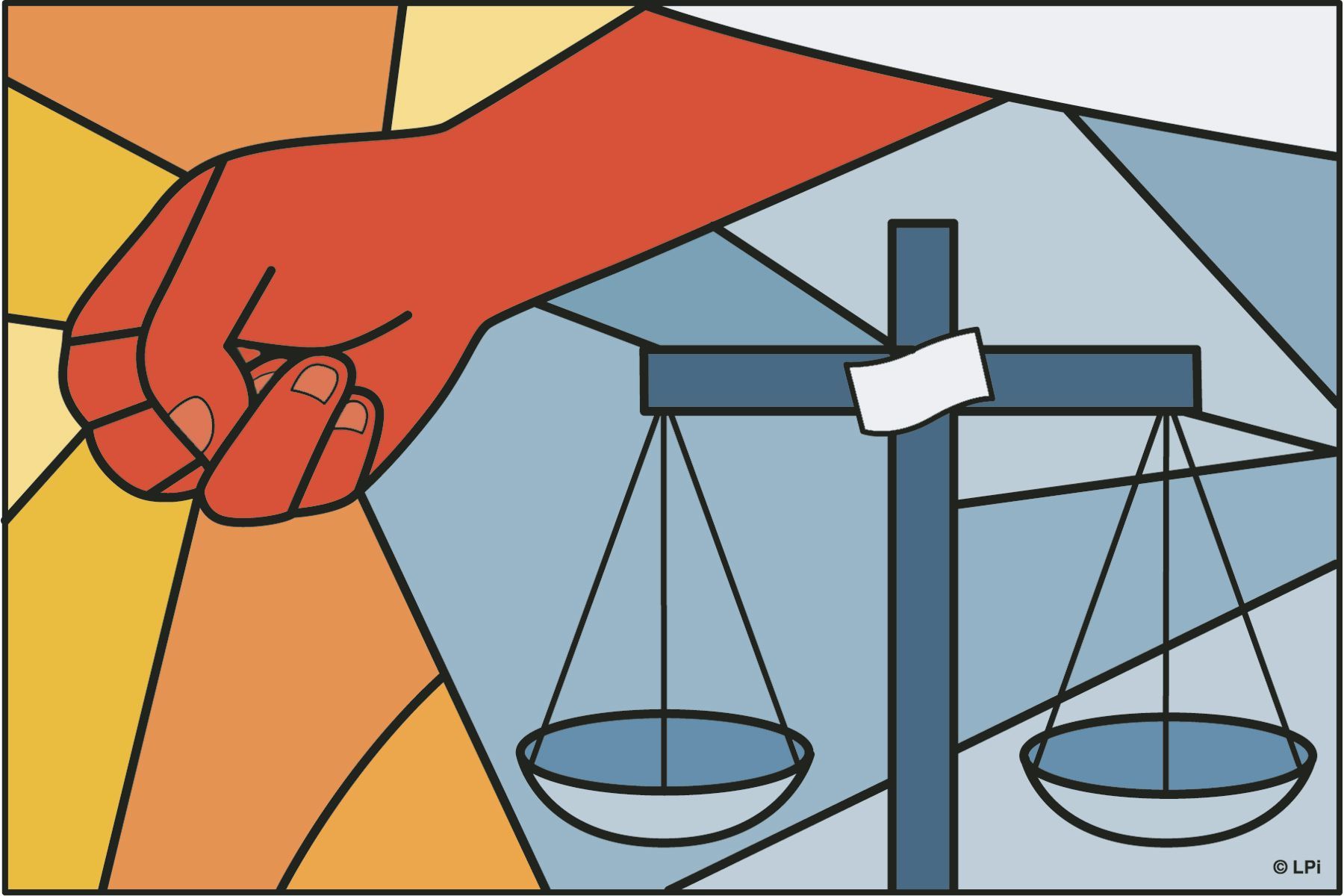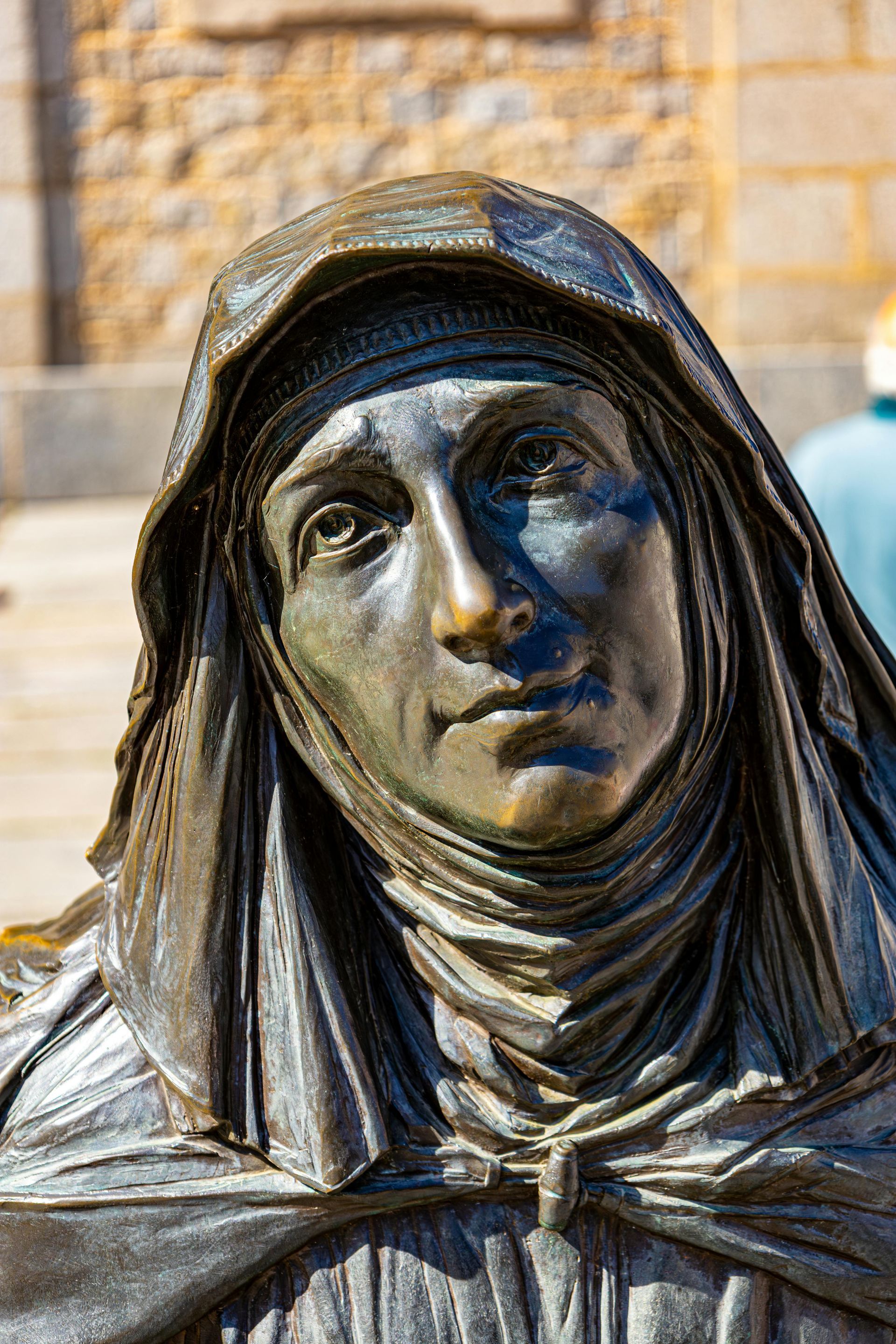Good Friday March 29, 2024
Good Friday
March 29, 2024
Two of the names for Jesus are Light of the world and Lamb of God. We see both names are present in the Passion according to John.
In his telling of the passion John has a back and forth of Pilate as he seeks to find the truth. The Praetorium is the place where Pilate places charges upon Jesus. He goes in alone while the church leaders wait outside. For John’s telling of the trial, he goes in and out of the Praetorium. For John the Praetorium is the place of Darkness, and the stone steps are the place of light. Ray Brown in his commentary has this to say.
“” The Jews’ are outside the praetorium refusing ot enter; Jesus is inside the praetorium; these are the separated forces of darkness and light.
Pilate must shuttle back and forth, for he is the person-in -between who does not wish to make a decision and so vainly tries to reconcile the opposing forces.
For John, however, one must decide for light or darkness and thus judge oneself as one face the light come into the world.
By not deciding for the truth, Pilate is deciding for falsehood and darkness.”
Light is an image that will be very present in the Easter Vigil and season. As we gather in the darkness at the Easter Vigil the darkness will be torn by the light of the Easter fire and the Paschal candle ( A name meaning sheep) the Paschal candle will be lite from the fire and many small lights will be lite as the light of the world is passed from person to person. We will sit in darkness and listen the words of scripture telling us about the actions of our God before the time of Christ.
Later a light will be taken from the Paschal Candle and given to the newly baptized Christians.
On Easter Morning we greet the light of a new day, a day that reminds us of the light of the resurrection. A light we will all experience as we also experience resurrection.
Easter is possible because Christ died and rose for us.
John tells his story of the passion. He notes that Jesus is condemned to death, at the same time the lambs are being slaughtered for the Passover meal. The lamb of God dies to take away our sins to free us in the same way the Passover lamb freed the Jewish people. Jesus is the Lamb of God who takes away the sins of the world.
Pilate asks the question, “What is truth”. For Pilate the truth is that Jesus is the son of God and Pilate is unable to grasp this truth. Here is Brown again;
‘” Everyone who is of the truth hears my voice’ is a test of Pilate; the judge is being judged.
Pilate’s response, ‘What is truth?’ is not to be understood as a profound philosophical question.
It does echo the imperiousness of the Roman who challenged; but ironically it is a self-condemnation.
His failure to recognize truth and hear Jesus’ voice shows that he does not belong to God.
This the last time in John that Jesus shall speak of truth, and his voice has not been heard.”
After these scenes in the gospel, we go with Jesus to witness his life-giving death. Unlike Pilate, we know the end of the story and we know the truth of Good Friday. A day that recalls a Roman execution has been named good not because suffering and death are good, but because as a result of Jesus’ passion and death we meet the resurrected Christ on Easter Sunday.
In a few moments we will venerate the cross, a torture device, that has became a sign of hope for all who know the truth of the cross and resurrection.
I applaud you for being here. Many will join us to celebrate the resurrection on Easter, but few are willing to stand and witness the passion and death of Christ.
May this day truly be good for all who join us this night to venerate the cross and honor the passion and death of our Lord.






